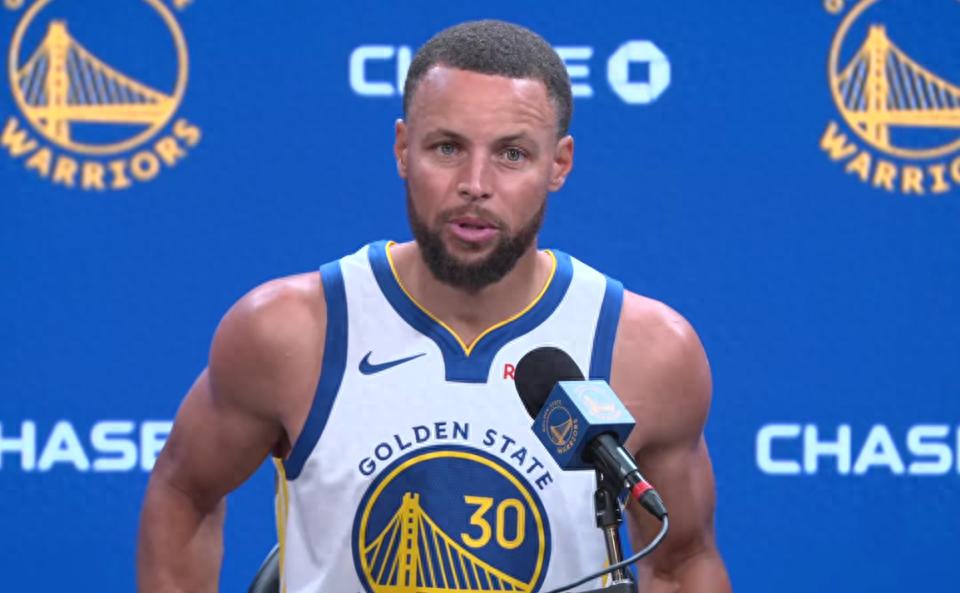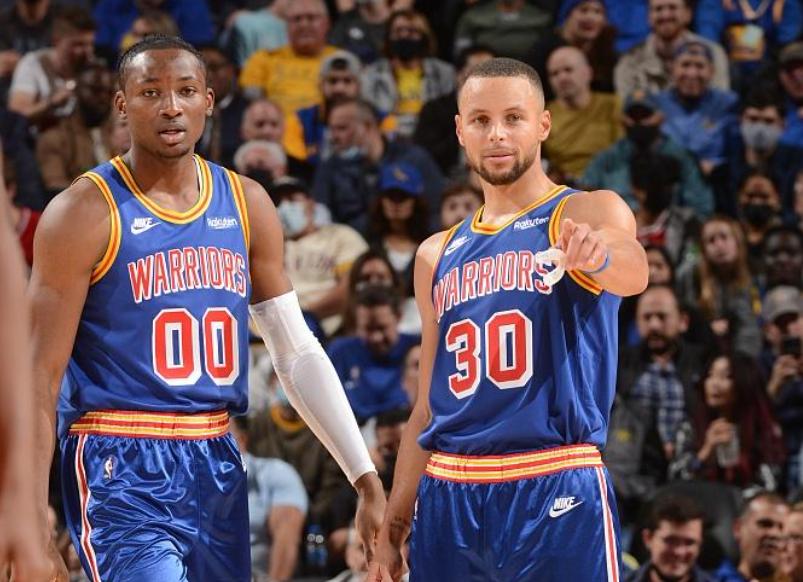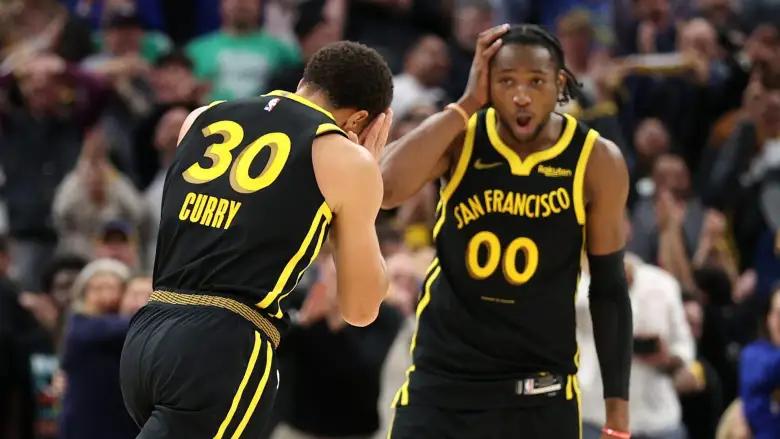Curry: Kuminga said he will give his all once he rejoins the team; the Warriors' roster is stronger than last season.
On September 30th, at the Warriors media day, Curry was asked about Kuminga in half of the questions. Concerning the biggest offseason mystery for the Warriors, how does Curry perceive and explain it? Below is the complete transcript of all relevant parts from the interview—

Reporter: Stephen, I don’t want to begin with a difficult question, but knowing the roster is still changing, like if Kuminga will come back and when, do you guys talk about this privately? Is there a clear discussion like ‘this is how we have to handle this situation,’ or has this communication become so natural that you don’t need special talks?
Curry: We definitely talk about it. As team leaders, we have to face what’s happening, but we don’t overanalyze—it’s just a team trying to figure out the current situation and handle the challenges. We understand Kuminga’s status and the new players added. Actually, before every training camp, we discuss how the team plans to win that year.
We respect the process. Things will resolve eventually. When he returns and is ready to train, we expect him to focus on his role and help the team win. So we keep an eye on these matters, but in the end, we return to the players’ main job—to get on the court and play. Regardless of the process, that’s the core.
Reporter: Recently, when you’ve communicated with Kuminga, what key message do you want to convey to him?
Curry: Negotiations are never easy; everyone knows that. Each person’s situation is different, and there are all kinds of voices and stories outside—business matters are like that, some straightforward, some not. Kuminga’s case is clearly one of the complicated ones. But once he’s back here, he needs to adopt a professional player’s mindset, do what he’s supposed to do, and seize the chance to help the team win. Everyone in the locker room has that responsibility. I’m not worried he won’t do that—that’s what we expect from him.

Reporter: Are you satisfied with how the team’s roster has finally taken shape and the process of finalizing the lineup?
Curry: As long as this minor issue (referring to Kuminga’s contract and return) is resolved, I’m very happy with the roster adjustments now. We want to continue last year’s momentum, and playing all 82 regular-season games is a challenge for every team, especially for a veteran-heavy team like ours. But our performance and winning percentage were good at the end of last season, and before I got injured in the second round, we were a very competitive team—our current roster is stronger than last season’s.
Of course, losing Looney is unfortunate; his importance to the team can’t be denied. But we still have many players who have the chance to improve. Just like every NBA season—last year I probably said something similar at this podium—we started 12-3 but then went through months of chaos. So all we can do is control our mindset going into the new season. The atmosphere in the team now is optimistic and positive, as it should be.That’s how it is.
Reporter: I know you mentioned that once Kuminga returns, you expect him to focus on playing, but clearly, this (contract issue) has been a major distraction in the offseason and will likely continue after he’s back. Are you worried this distraction might affect the team as a whole?
Curry: I don’t see it that way. Sure, he’ll be asked about it when he returns—just like you’re asking me now, everyone will ask. But the key is how we communicate when I put down the mic and enter the locker room—that determines if we can enter the season with the right mindset. The good news is, we’ve played for so many years that we know how to separate ‘business matters’ from ‘basketball matters’—they are completely different things. Our job is to focus on basketball itself and not let other things affect our daily training and game performance.
Reporter: Was this offseason a unique one? You’ve surely experienced teammates negotiating contracts before, but Kuminga’s situation seems different. Do you think this is a special case?
Curry: I think every event that happens on our team is special, so this is just part of the journey. It’s special that we’ve maintained championship-level competitiveness for so many years; it’s special that we’ve worked to keep this level so long; Kuminga’s situation is special; and my current career stage is special. Overall, you have to accept the good and the chaos because this kind of situation is quite rare.
But it actually motivates me more because it keeps us focused on the core goal of winning. We’ve done well in this regard for many years and want to continue doing so.

Reporter: Kuminga’s agent said, ‘If we get the contract we want, we will go all out to compete for the championship.’ How do you view this statement? What do you think about ‘conditional commitment’?
Curry: I only listen to what my teammate says personally, not what agents or others say on his behalf. I want to hear directly from Kuminga himself.
Reporter: So what have you heard from Kuminga himself?
Curry: He said he will give his full effort once he returns. I only know that, as a man-to-man conversation, he doesn’t want to cause trouble for the team because of his situation and wants to resolve it first. He will explain the details himself.










 Links
Links
 Contact
Contact
 App
App


